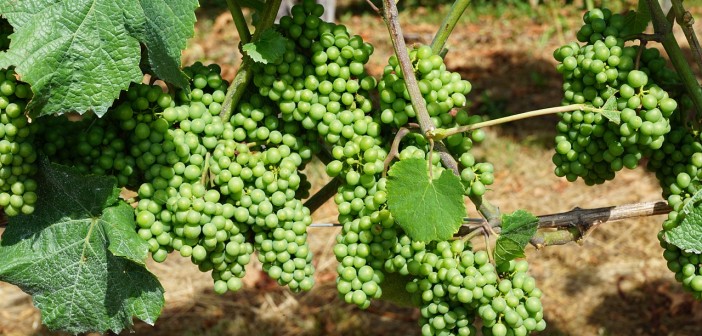The fifteenth chapter of John’s Gospel contains rich imagery of the vine and the branches, an image that would have been obvious to those who labored in vineyards and enjoyed the fruit of the vine. “I am the vine; you are the branches,” he teaches his disciples. We draw our strength, our life, from him: “I am the vine; you are the branches, and apart from me,” he says, “you can do nothing.”
To abide in Jesus is to remain connected to him. When we lose that connection — when the branch is severed from the vine — there is no life, no growth, no fruit.
Then Jesus concludes with a necessary implication. We are connected with God, and we are in communion with each other for a larger purpose: a calling in the world. “You did not choose me,” Jesus says. “I chose you… I appointed you to go and bear fruit.”
What does it mean to bear fruit? Those who heard this teaching for the first time would have heard these words and placed them in their Mediterranean context. They would have immediately made the connections: the labor, the cultivation, the pruning, the growth, the fruit, the abundance, the feast. In a vineyard, one experiences life in all of its fullness.
Abide in me. And so Jesus makes the claim, of himself, that he is the vine. “I have come that you may have life and have it in abundance,” he had announced to them. To abide in Jesus is to remain connected to him. When we lose that connection — when the branch is severed from the vine — there is no life, no growth, no fruit. “I want you to abide in me,” he is saying. “I want you to remain connected to me.” Why does he say this?
The reasons go deeper than mystical experience and personal piety. We remain connected to the vine because that is the way we bear fruit. And here the inward spiritual grace becomes an outward and visible sign. The natural consequence of a healthy root taking in nutrients is that it produces something wonderful. It bears fruit.
Fruitfulness is about more than individual spirituality. Jesus had been with the disciples for some time — a significant amount of time with just a few people, hidden mostly from the crowds, investing all of this time in twelve people. He was teaching them about friendship with God, which involved prayer and the reading of scripture. He sensed that there were dynamics going on between them, struggles over who would sit in the places of power and over whose voice would be heard most clearly. And so he gave them a command and an invitation: love one another.
But it was always about more than an individual’s spiritual life or a group of people and their love for each other. He wanted the disciples to bear fruit; he wanted their lives to make a difference.
Fruitfulness extends to others. What does it mean to bear fruit, for a winemaker? Winemakers would want to make enough bottles of wine for their own enjoyment, maybe to share with others, and maybe for profit. Bearing fruit would mean a number of bottles of wine, a number that we would count. But bearing fruit also has to do with what is inside the bottles. We could make a large number of bottles of wine, but what is inside them could be mediocre. Or, at the other extreme, we could spend all of our time making a very few bottles of wine that are exceptional, but only a few people would enjoy them.
Which is bearing fruit? Bearing fruit is making wonderful wine that can be shared at feasts and celebrations but also in everyday life, at common meals. To bear fruit is to be sustained through the highs and lows, the ups and downs, the amazing and the ordinary.
Fruitfulness involves accountability. When I hear Jesus say that “I appointed you to go and bear fruit,” a word occurs to me: accountability. We are accountable to Jesus for the life we have received from him. Sometimes accountability can be measured, and sometimes it cannot be measured. What is important is that we allow the grace of God to be poured out through us. We allow the inward and spiritual grace to become an outward and visible sign.
I am aware that there are dimensions of ministry that cannot be measured, that are hidden — acts of grace or justice or reconciliation known only to God. And yet this truth does not prevent us from engaging in the difficult process of speaking the truth about who we are. The absence of professions of faith in many of our congregations and an inability to identify persons served in mission are symptoms of a deeper crisis: a lack of connection with Jesus. To be honest, I prefer not to be the judge of whether we are bearing fruit. God will take care of that. But there are some things we can measure.
We are stewards of the vineyard. Sometimes we can measure the fruitfulness, acknowledging that God gives the growth. We each have a stake in this vineyard. My inclination is to want to measure the fruitfulness because I am caught up in the American way of wanting to quantify everything. There is a discipline to that, a discipline that makes us more efficient, perhaps even better stewards. But the harvest, finally, is God’s to judge. God will measure our fruitfulness. Jesus simply calls us to bear fruit.
This article is adapted from a piece that appeared in Circuit Rider magazine published by the United Methodist Publishing House. Used by permission.
Related Resources:
- Bearing Fruit: Ministry with Real Results by Lovett H. Weems, Jr., and Tom Berlin
- Assess Your Personal Fruitfulness using the Lewis Pastoral Leadership Inventory™







